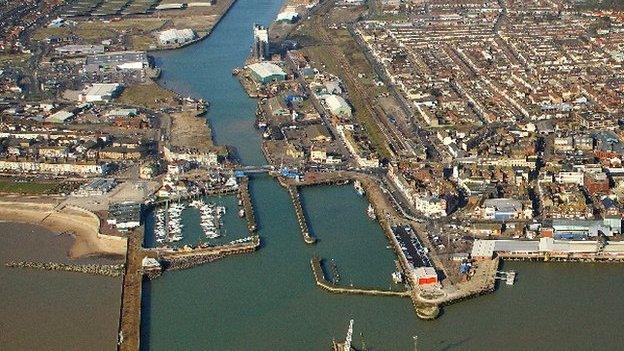Lowestoft's third bridge: What will it mean for the town?
- Published
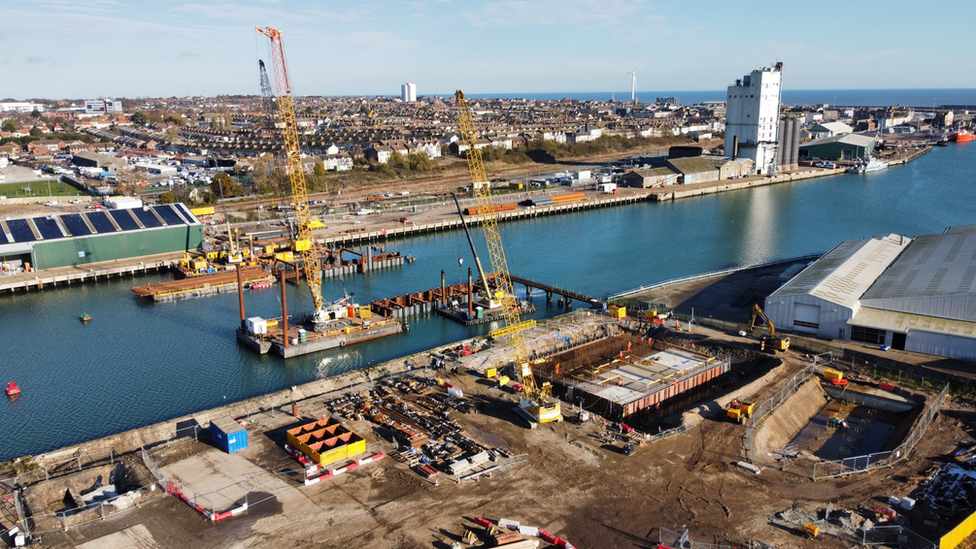
The new bridge will be the third crossing over Lake Lothing in Lowestoft
A third water crossing is being built in the UK's most easterly town after decades of campaigning.
The Gull Wing bridge will cross Lake Lothing in Lowestoft, Suffolk.
Both the county council and the government are investing millions of pounds, but what will the town be getting for the money?

How did we get to this point?
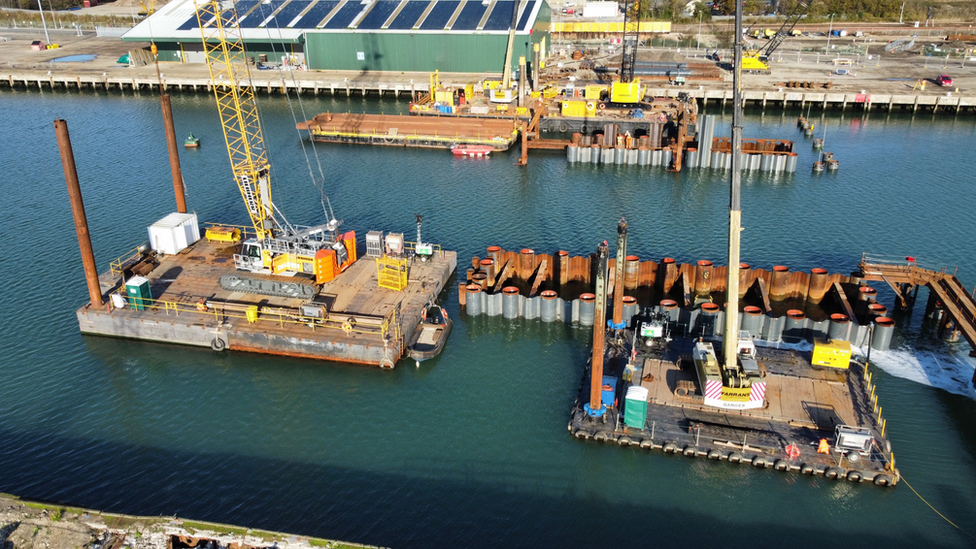
The bridge was given its name, Gull Wing, by pupils from a Lowestoft primary school
People in Lowestoft have been campaigning for a new bridge for 50 years due to traffic congestion in the town.
But for several years there was a lack of funding from central government and disputes about the location of the crossing.

Artist's impression of plans for the third crossing of Lake Lothing, which divides south and north Lowestoft
When the current plan was first approved in 2015, Suffolk County Council said it considered two ideas for a more central crossing but believed its plan for the eastern end of Lake Lothing would be the most appropriate option.
The bridge will be known as Gull Wing after being named by children from a local primary school.

Where will it be?

The bridge will open to let ships pass through
The new crossing will be next to the existing Bascule Bridge at the eastern end of the waterway.
It will connect Waveney Drive and Denmark Road and will open mechanically to let ships pass through.
The crossing is planned to reduce congestion in and around the town, particularly around the Bascule Bridge area, and help attract investment, the county council said.
There is also a crossing at Oulton Broad, on the western edge of the lake.

When will it be finished?
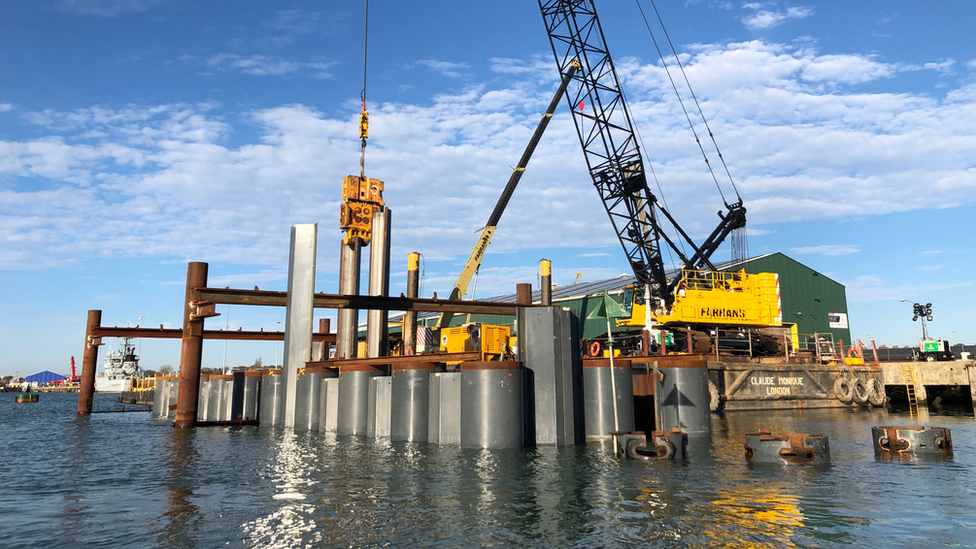
Suffolk Council Council hopes the new bridge will ease congestion on the existing Bascule Bridge
Work started in March this year on the biggest engineering project in Suffolk since the Orwell Bridge, which opened in 1982.
It will use 20,000 cubic metres (706,293 cubic ft) of concrete and 6,000 tonnes of steel, and last week trucks pouring the first lost concrete poured for 14 hours straight.
Suffolk County Council said the bridge was expected to open in summer 2023.

How was it paid for?
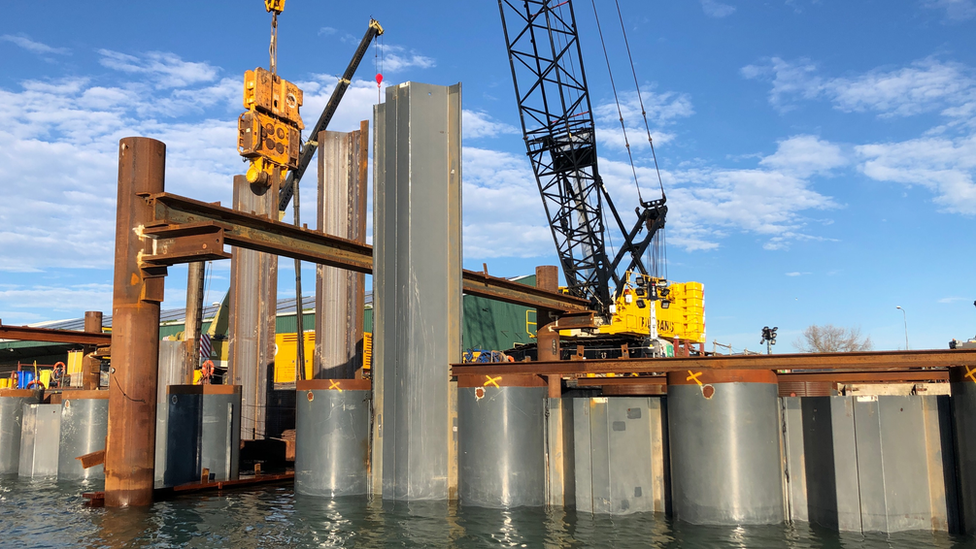
It is hoped the bridge will open in 2023
The project is using £73.4m of Department for Transport, external funding, with the majority of the remaining money coming from Suffolk County Council.
The council will borrow up to £65m and use £6.9m from its existing funds, and it has also built in a contingency pot of £19m to cover unforeseen costs, taking the total budget for the project to £145m.

What do people say about it?
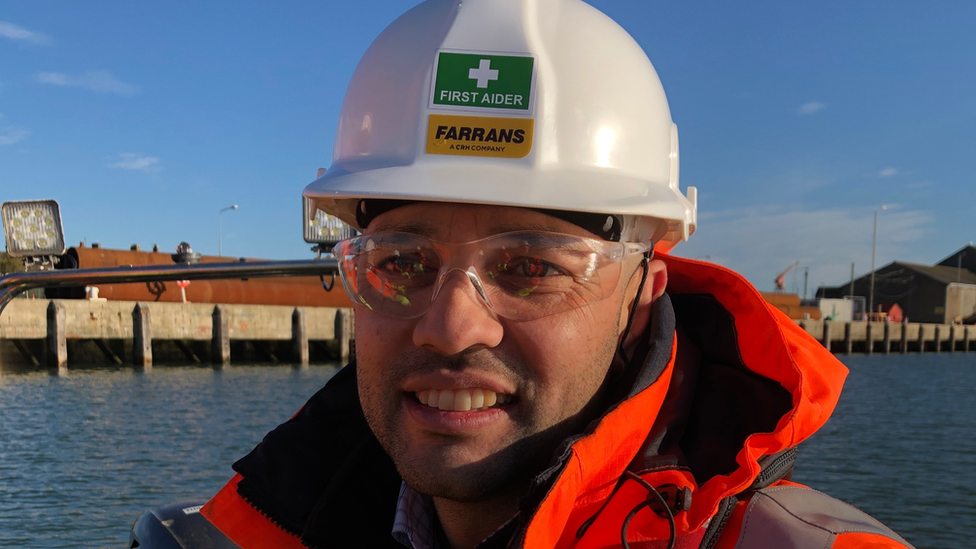
Tristram Browne is the project manager for the contractors Farrans
Tristram Browne, project manager, has moved from Scotland to tackle the bridge.
He said: "If a job's as exciting as this one, there's no decision to make.
"From an engineering point of view, it's very exciting for us all.
"It has many elements of real technical engineering work and it's going to be an absolutely outstanding flagship project."
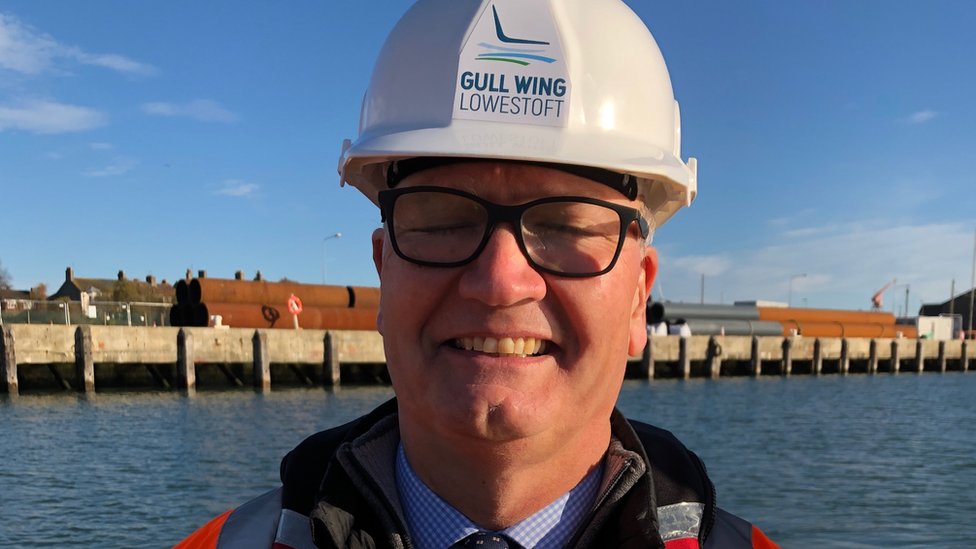
Council leader, Matthew Hicks, said the bridge was nationally important
Matthew Hicks, Conservative leader of Suffolk County Council, said Covid had contributed to the initial increase in costs announced last year.
But he said: "The bridge is within the budget and we hope to deliver it on time."
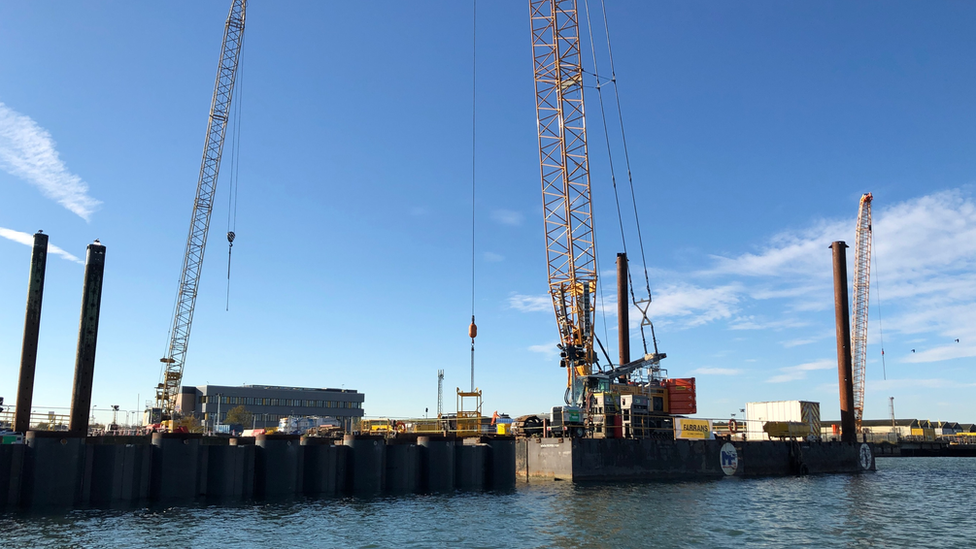
The bridge project has been supported by the local MP and councils

Find BBC News: East of England on Facebook, external, Instagram, external and Twitter, external. If you have a story suggestion email eastofenglandnews@bbc.co.uk, external
Related topics
- Published25 November 2020

- Published26 August 2020

- Published17 August 2020

- Published30 April 2020

- Published14 September 2018

- Published13 February 2018
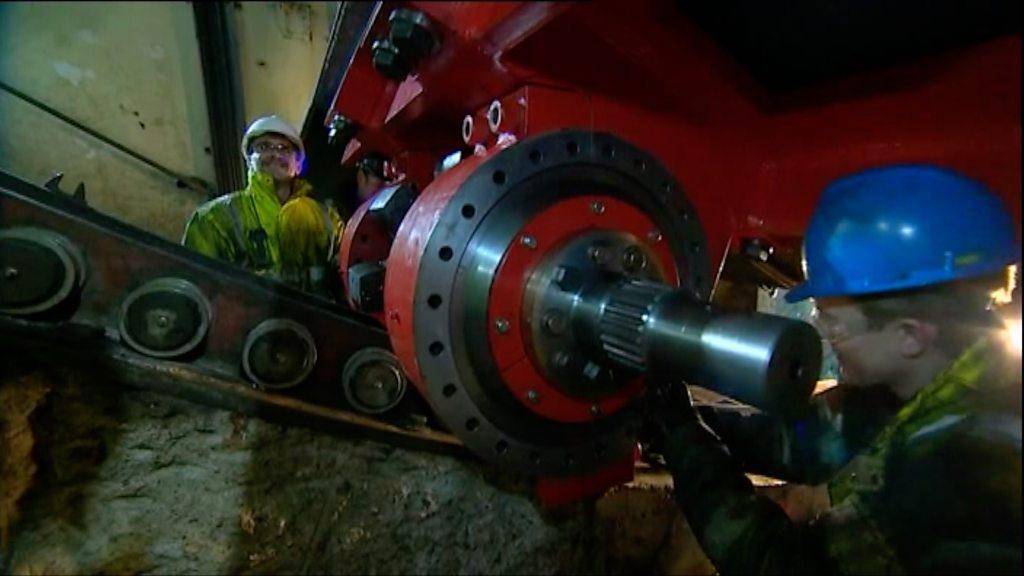
- Published18 April 2015
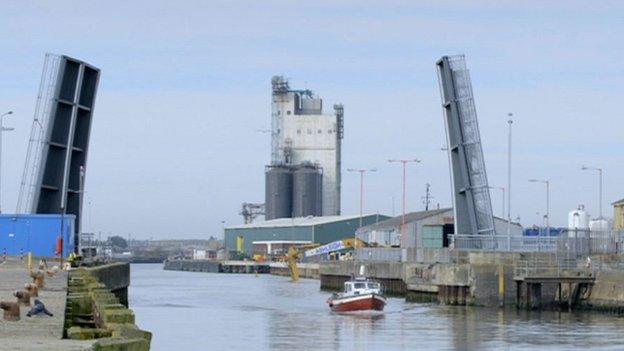
- Published20 February 2015
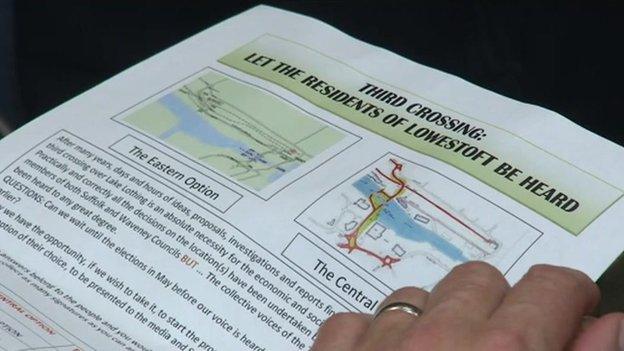
- Published28 January 2015
